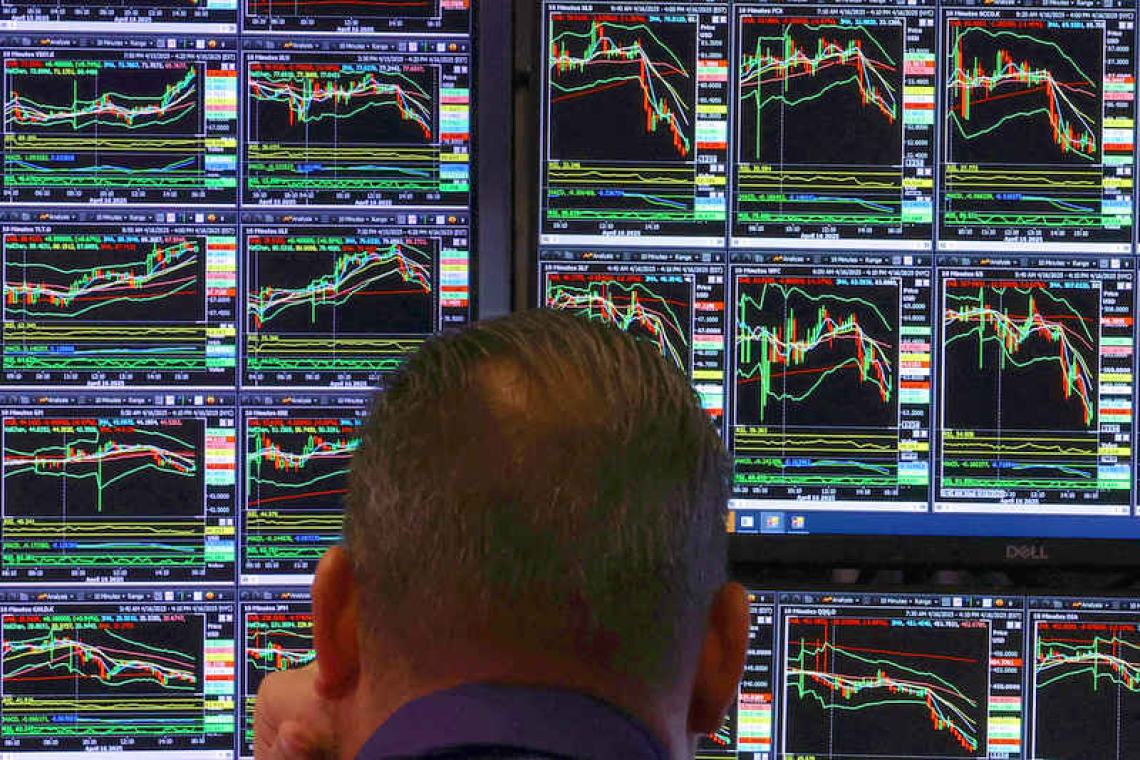CHICAGO--U.S. Federal Reserve Chair Jerome Powell said on Wednesday the Fed would wait for more data on the economy's direction before changing interest rates, but cautioned that President Donald Trump's tariff policies risked pushing inflation and employment further from the central bank's goals.
Powell, speaking for the first time since Trump last week paused some of the more stringent of his barrage of tariffs, also characterized the ensuing market volatility of recent weeks as a logical processing of the Trump administration's dramatic shifts in trade policy - not a sign of stress that warranted a Fed response.
"For the time being, we are well positioned to wait for greater clarity before considering any adjustments to our policy stance," Powell said in a speech to the Economic Club of Chicago.
In a later question-and-answer session he noted a potentially tough situation developing in which prices are pushed higher by tariffs while growth and possibly the labour market weaken, leaving both inflation and employment further away from the Fed's desired levels. The Fed tries to keep inflation stable at 2% while sustaining maximum employment.
"I do think we'll be moving away from those goals, probably for the balance of this year. Or at least not making any progress," due to the impact of tariffs that so far have proved larger than even the most severe scenarios in Fed planning estimates, Powell said.
He called Trump's tariff plans "fundamental changes" that don't provide businesses and economists with any clear parallels to study.
Powell said the U.S. began the year around full employment and with inflation expected to continue falling to the Fed's target, something many doubted it could accomplish.In his first public remarks on recent financial volatility, Powell said he felt bond and stock markets were functioning well, showing investors adapting to the new policy landscape.
Asked if there is a "Fed put" where the central bank would step in if markets plummet, Powell said "no," while offering an explanation. "Markets are struggling with a lot of uncertainty and that means volatility. But having said that, markets are functioning...They're orderly and they're functioning just about as you would expect them to function."
U.S. stocks, already down on the session before Powell spoke, extended their losses afterward."I think people were expecting Powell to be neutral and he was hawkish instead," Jim Carroll, senior wealth advisor at Ballast Rock Private Wealth in Charleston, South Carolina, said about the additional losses in stocks in response to Powell's appearance. "When asked if there’s such a thing as a Fed put for the stock market, his answer was 'no.'"
In a wide-ranging conversation, Powell also said the Fed was closely monitoring the outcome of a Supreme Court case about Trump’s firing of officials at independent agencies, but he did not think the outcome would apply to the Fed. Powell said Fed independence was a matter of law that could only be altered by Congress and drew robust applause for pledging to ignore political influence and set monetary policy based on economics and "without consideration of political or any other extraneous factors."
For now, though, it is the politics around tariffs that have left the Fed guessing. It remains uncertain where trade policy will ultimately settle, and the back and forth on its own is leaving businesses and individuals uncertain how to react and, Fed officials worry, may raise public expectations about future inflation.







